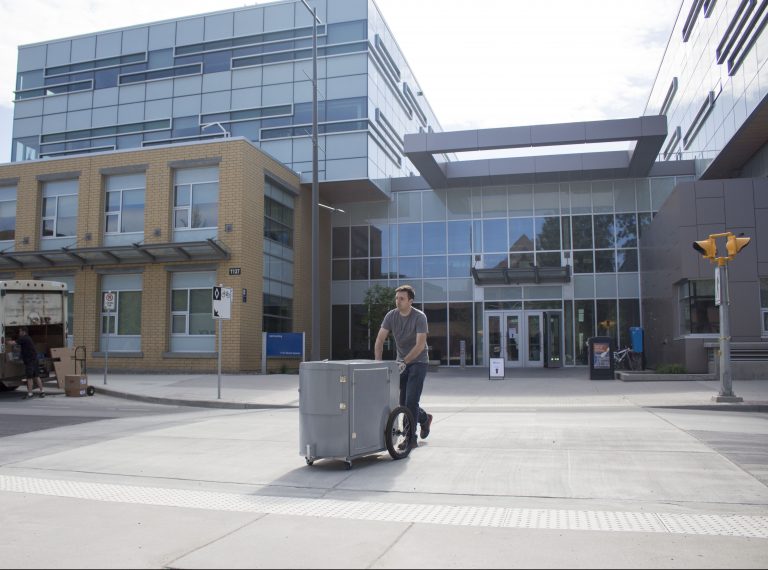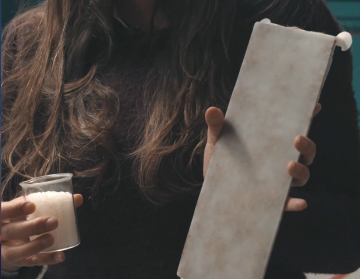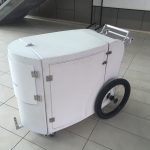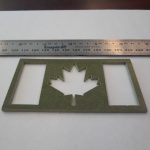With the rising concerns worldwide over climate change and depletion of non-renewable resources, materials derived from plants as well recycled biomaterials, continue to offer a great alternative solution to petroleum-based products. Under this research theme, we bring together a multi-disciplinary team of researchers from CRN with Western Canadian industry professionals to advance research in the engineering of bio-based products, in particular bio- and recycled composites. The research projects focus on the entire production supply chain from biomass feedstock characterization to manufacturing of the composites, to multi-criteria performance assessment of the final bio-products including their durability and long-term socioeconomic impact. Although several advantages offered by green composites are well known at the basic scientific level, their optimum use in higher technology and economically sustainable industrial applications such as transportation and aerospace is still limited, and poses serious research questions to be answered.
In addition to green composites, our laboratory is highly dedicated to community based projects where light, and yet strong fiber reinforced materials can make a difference in the society in practical and powerful ways. For such projects, in close collaboration with faculty at Social Sciences we conduct the research with people from the onset, and try to cultivate their needs in every step of the design process.
Reinforcing Recycled Plastic Waste with ‘Plastinated’ Organic Fiber Additives
Partners: Dr. Grant Bogyo, TELUS
Plastic bottles are one of the most widespread pollutants on the planet. Ron Ryde has created a simple machine in his garage in Penticton to break down and reuse the plastic bottle. The chipping process reduces the size of the plastic waste at the source and makes it possible to fir more waste in each shipping container. His coworker, Dr. Grant Bogyo, is working at CRNO to develop a strong organic fiber additive to strengthen recycled plastic. Their new formula can help poor African countries to reuse their plastic resource in the building industry as an alternative to steel rebar. These countries can benefit a lot from this process which reduces plastic pollution and provides employment opportunities for the inhabitants. To learn more about this project, check out the Bottled up documentary.
Partners: Dr. Grant Bogyo, TELUS
Plastic bottles are one of the most widespread pollutants on the planet. Ron Ryde has created a simple machine in his garage in Penticton to break down and reuse the plastic bottle. The chipping process reduces the size of the plastic waste at the source and makes it possible to fir more waste in each shipping container. His coworker, Dr. Grant Bogyo, is working at CRNO to develop a strong organic fiber additive to strengthen recycled plastic. Their new formula can help poor African countries to reuse their plastic resource in the building industry as an alternative to steel rebar. These countries can benefit a lot from this process which reduces plastic pollution and provides employment opportunities for the inhabitants. To learn more about this project, check out the Bottled up documentary.
Personal Belongings Carrier for the Homeless
Partners: Metro Community Church, City of Kelowna, RCMP, Waterplay Solutions
The homeless often have many options of recourse available, yet they are not always as easy to access as the general public may assume. There are significant mental barriers in place, that prevent access to services, such as social security or subsidised housing solutions. Inspired by ideas generated on the streets themselves, this project has been launched by Metro Community Church in Kelowna BC, to develop a Personal Belongings Cart (PBC) to replace the typical shopping cart for use by the homeless, in turn providing a sense of ownership, dignity and advancement towards these more permanent solutions.
Partners: Metro Community Church, City of Kelowna, RCMP, Waterplay Solutions
The homeless often have many options of recourse available, yet they are not always as easy to access as the general public may assume. There are significant mental barriers in place, that prevent access to services, such as social security or subsidised housing solutions. Inspired by ideas generated on the streets themselves, this project has been launched by Metro Community Church in Kelowna BC, to develop a Personal Belongings Cart (PBC) to replace the typical shopping cart for use by the homeless, in turn providing a sense of ownership, dignity and advancement towards these more permanent solutions.
Make a donation to Personal Belongings Carrier
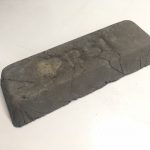
Green Manufacturing and Materials Initiative
Partners: Passive Remediation Systems Inc., Teece Wood Products Inc., StoneQuest, North Okanagan Regional District
Creating a green material for adoption into existing industries, such as composites manufacturing, can experience many roadblocks. For once, any new product is typically met with skepticism and reluctance to adopt it, given the inherent risk of unknowns. CRN-Okanagan is partnering with multiple local and nationwide partners, to not only help develop confidence in the performance and processability of green materials, ranging from biochar to recycled stone powders and biomass fibre sources, as well as developing a supply chain to help push through these solutions at a more expedited rate with a greater degree of confidence. One current leading candidate in this initiative is the development of a concrete that uses a blend of natural and recycled products for non-structural commercial and municipal use.
Partners: Passive Remediation Systems Inc., Teece Wood Products Inc., StoneQuest, North Okanagan Regional District
Creating a green material for adoption into existing industries, such as composites manufacturing, can experience many roadblocks. For once, any new product is typically met with skepticism and reluctance to adopt it, given the inherent risk of unknowns. CRN-Okanagan is partnering with multiple local and nationwide partners, to not only help develop confidence in the performance and processability of green materials, ranging from biochar to recycled stone powders and biomass fibre sources, as well as developing a supply chain to help push through these solutions at a more expedited rate with a greater degree of confidence. One current leading candidate in this initiative is the development of a concrete that uses a blend of natural and recycled products for non-structural commercial and municipal use.
Recycled stone composite project
Partners: StoneQuest, North Okanagan Regional District
Composites are a material family that offer enormous flexibility. This is the case with respect to selecting material properties, forming processes and constituent materials used. The use of recycled materials is an area with many possibilities for developing novel and useful composites. Granite powder, as a waste product from stone-cutting processes, is currently dumped in landfills around the world, creating a myriad of environmental problems. Instead, a new polymer/stone composite has been developed for deployment in many consumer industries, which uses this waste product and also adding significant structural value to the polymeric matrix material.
Partners: StoneQuest, North Okanagan Regional District
Composites are a material family that offer enormous flexibility. This is the case with respect to selecting material properties, forming processes and constituent materials used. The use of recycled materials is an area with many possibilities for developing novel and useful composites. Granite powder, as a waste product from stone-cutting processes, is currently dumped in landfills around the world, creating a myriad of environmental problems. Instead, a new polymer/stone composite has been developed for deployment in many consumer industries, which uses this waste product and also adding significant structural value to the polymeric matrix material.
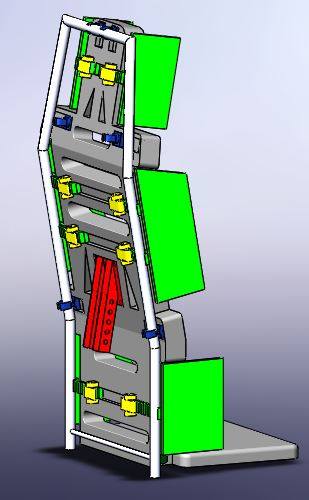
Universal Seat Attachment
Partners: Community Recreational Initiatives Society (CRIS)
RIS is a non-profit and charitable organization that uses adaptive equipment to enable people of all abilities and disabilities, including people with partial and complete paralysis, to interact with the great outdoors. The major programs that CRIS provides are kayaking, hiking, and cycling. These activities use modified kayaks, a Trailrider, and tandem tricycles. The current method of securing participants to the equipment is cumbersome and takes time to ensure they are properly secured. In order to minimize time required to initiate the activities, and maintain dignity, the Universal Seat Attachment was designed to easily secure the participants, while being lightweight and easily attachable to the kayaks, Trailrider and tandem tricycles. The CRN-Okanagan group, leading with a Capstone design project, has been working closely with CRIS to develop this product.
Partners: Community Recreational Initiatives Society (CRIS)
RIS is a non-profit and charitable organization that uses adaptive equipment to enable people of all abilities and disabilities, including people with partial and complete paralysis, to interact with the great outdoors. The major programs that CRIS provides are kayaking, hiking, and cycling. These activities use modified kayaks, a Trailrider, and tandem tricycles. The current method of securing participants to the equipment is cumbersome and takes time to ensure they are properly secured. In order to minimize time required to initiate the activities, and maintain dignity, the Universal Seat Attachment was designed to easily secure the participants, while being lightweight and easily attachable to the kayaks, Trailrider and tandem tricycles. The CRN-Okanagan group, leading with a Capstone design project, has been working closely with CRIS to develop this product.
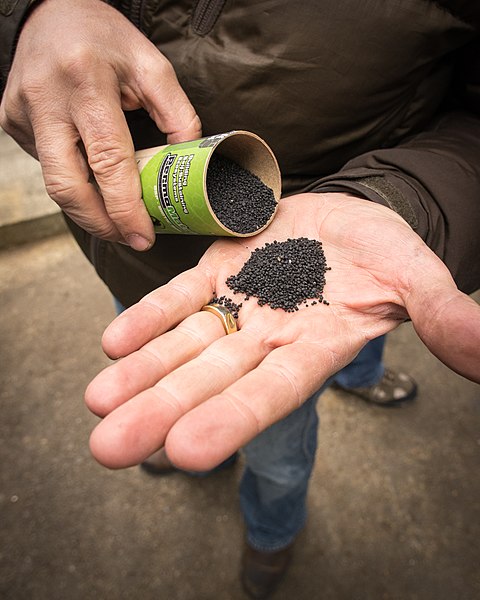
Research on Biochar
Working on unique ways to recycle materials that would otherwise be thrown into the landfill. Read more
Working on unique ways to recycle materials that would otherwise be thrown into the landfill. Read more
